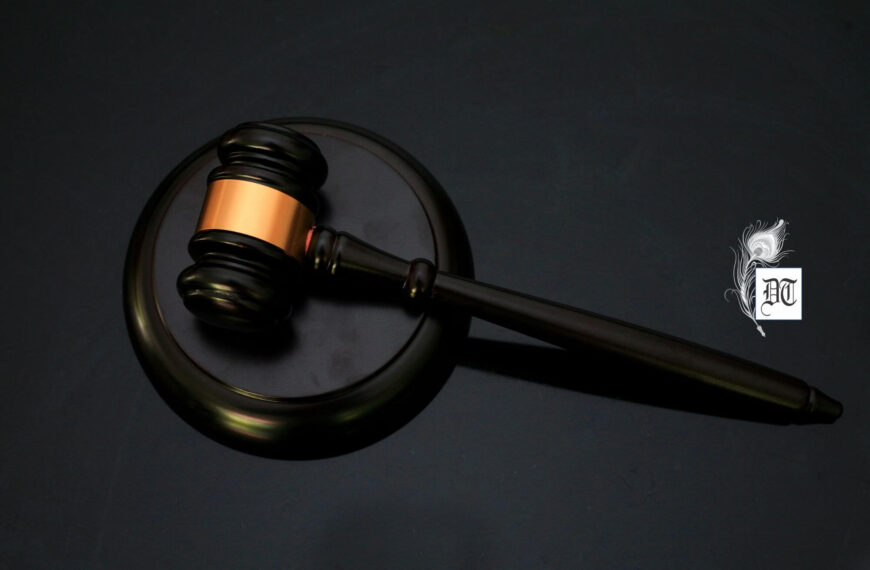The National Human Rights Commission (NHRC) made a strong pitch for immediate passage of Prevention of Torture Bill in Upper House of Indian Parliament, saying it is urgent to ensure that extracting information through torture is declared illegal. Addressing a conference organised by PVCHR and DIGNITY: Danish Institute against Torture, on July 12, 2012, NHRC Chairperson K G Balakrishnan said the Parliament needs to pass the Bill urgently so that the culture of extracting information through torture is made illegal and the guilty are punished by law. India has also not ratified the UN convention against torture which asks states to declare torturing a criminal offence under its jurisdiction. Here’s an expose by Lenin how the police continue to torture with impunity, in the weekly column, exclusively in Different Truths.
The Supreme Court’s latest landmark verdict against police’s century-old discretionary powers concerning arrest, detention and remand is a bold judicial pronouncement in favour of people’s liberty and fundamental rights.
According to Article 33, an arrestee must not be detained without informing him or her the reason for the detention and the arrestee must be given the right to consult lawyers.
Article 35 also provides an arrestee with the protection that he or she shall not be compelled to be a witness against him or herself. It also prohibits torture in police remand to extort information as it clearly states no person shall be subjected to torture or to cruel, inhuman, or degrading punishment or treatment.
But many people, who have been arrested and placed on remand, have been denied of their constitutional rights.
It is because the law enforcement agencies do not bother about the constitutional provisions. They have on many occasions abused their discretionary powers provided by Sections 54 and 167 of Code of Criminal Procedure (CrPC) of 1898. In so doing, they do not need to inform the arrestee about the reason for his or her arrest. They have taken arrestee on remand and tortured them for information.
This is why the High Court (HC) in its verdict delivered, in 2003, said the two sections of the CrPC is largely inconsistent with the constitution and asked the government to amend those provisions to make them consistent with the provisions of country’s supreme law. The Appellate Division upheld the HC verdict dismissing the appeal filed by the government. It is an open secret that the abuse of discretionary powers has become one of the major reasons for corruption in police administration.
None of the successive governments has taken any effective step to stop the corrupt practices. Instead, all the successive governments have benefited from the misuse of police powers by using it on leaders and activists of the opposition parties.
Following the Apex Court’s verdict, the government of India amended the CrPC, in 2010, to minimise abuse of the powers.
Through these processes there have been some improvements in the situation in India. The Law Commission of India in a report, in 1999, described the terrible situation prevailing in the country.
It said notwithstanding the safeguards contained in the CrPC and the constitution, the fact remains that the power of arrest is wrongly and illegally exercised in a large number of cases all over the country.
“Very often this power is utilised to extort money and other valuable property or at the instance of an enemy of the person arrested. Even in case of civil disputes, this power is being resorted to on the basis of a false allegation against a party to a civil dispute at the instance of his opponent,” said the commission.
The National Police Commission, in its Third Report, a few years ago, described the power of arrest as one of the chief reasons for corruption in the police. By and large nearly 60 per cent of the arrests were either unnecessary or unjustified, the Commission said.
Such unjustified police action accounted for 43.2 per cent of the expenditure of the jails, it noted.
With the situation remaining almost unchanged, the Indian Supreme Court, in 2013, came up with a set of strong guidelines concerning arrest and remand.
It asked all the state governments to instruct its police officers not to automatically arrest when a case is registered under section 498-A of Indian Penal Code. Before arrest, the police must be satisfied themselves about the necessity for arrest in exercise of the power under the CrPC.
It also asked magistrates not to authorise detention mechanically on the prayer of the police. The magistrate must be satisfied by going through the facts recorded by the police for ordering further detention.
Failure to comply with the directives shall, apart from rendering the police officers concerned liable for departmental action, also be liable to be punished for contempt of court to be instituted before the High Court having territorial jurisdiction, the SC court warned.
Judicial magistrates have also been warned by the Apex Court. Authorising detention without recording reasons as aforesaid by the judicial magistrate concerned shall be liable for departmental action by the appropriate High Court.
The latest move taken by the Indian Supreme Court has worked effectively to some extent, resulting in declining in the number of arrests in different states in India.
Situation in Bangladesh is the opposite. The HC in its verdict, in 2003, had issued 15-point directives concerning arrest on suspicion and remand. But none of the directive has been followed in last 13 years, prompting the Appellate Division to express its displeasure on April 17.
Police could not be held liable for their failure to obey the directive as there was no mention of punitive measure.
In the past, the successive governments have not implemented some important judgments delivered by the Apex Court. Even the SC had to struggle for many years to implement its judgment on the separation of the judiciary from the executive.
Now, proper implementation of the Apex Court’s latest verdict against arbitrary arrest, detention and remand depends on the political will of the government.
However, only implementation of the verdict is not adequate to cure the disease in the police administration. The government also should take measures to reform the police.
The judiciary, the custodial of the people’s fundamental rights guaranteed by the constitution, should be more vigilant to ensure people’s rights are not violated by the arbitrary use of police powers.
A victim of arbitrary use of power by police becomes traumatised as Justice MN Venkatachaliah, former chief National Human Rights Commission of India, said: “Arrest has a diminishing and demoralising effect on his [a victim’s] personality. He is outraged, alienated and becomes hostile.”
The police have already earned a bad name for various reasons, including excessive politicisation and alleged rampant corruption in its administration. The force is empowered by the state to enforce the law, protect property, and limit civil disorder. But it cannot deliver on its vision which is to provide quality service by competent, efficient and dedicated professionals enjoying trust and respect of citizens to make Bangladesh a better and safer place.
Arbitrary use of powers by the police also taints image of a country as the quality of a nation’s civilisation is largely measured by the methods it uses in the enforcement of criminal law.
The National Human Rights Commission (NHRC) made a strong pitch for immediate passage of Prevention of Torture Bill in Upper House of Indian Parliament, saying it is urgent to ensure that extracting information through torture is declared illegal. Addressing a conference organised by PVCHR and DIGNITY: Danish Institute against Torture, on July 12, 2012, NHRC Chairperson K G Balakrishnan said the Parliament needs to pass the Bill urgently so that the culture of extracting information through torture is made illegal and the guilty are punished by law. “Torture is a serious problem for India. Basic human rights are violated when torture is inflicted. It is not just physical pain, but mental which traumatises the individual and is an assault on his right to life,” he said. India has also not ratified the UN convention against torture which asks states to declare torturing a criminal offence under its jurisdiction, he noted 1 . Till today after many promises, Government of India is making eyewash tactics for ratification of UNCAT.
Sixteen-year- old Suraj Chaudhry has been waiting for most of his life: for lawyers, for justice, for his father’s eventual release from the prison after 14 years.
His father should have been let out in 2003, but the impoverished family could not pay the Rs. 24,000 bail (then worth $522, now worth $360) set by the court in the north Indian city of Lucknow. Suraj says his father was framed for murder because he was from the outcast Dalit community, also known as ‘untouchables’, within India’s ancient system of caste hierarchies.
“So my father was sent to jail, while a rich man from our village who belongs to an upper caste and is behind that murder is roaming free,” Suraj said, leaning against a wooden pillar within the High Court compound, where he has become a regular. Each day after working his job in a tea shop, Suraj insists he will not leave “until I get an answer” on when his father might be released. But as the sun goes down, he eventually leaves, vowing to return the next day.
There are tens of thousands of prisoners like Suraj’s father in the state of Uttar Pradesh, where at least 70 per cent of the state’s 84,228 inmates have languished in jail because they cannot afford to pay bail while their cases take years or even decades to wend through India’s notoriously slow and backlogged judicial system, according to the Jail Ministry of Uttar Pradesh.
Lawyers familiar with Suraj’s father’s case said his only hope was to find the money. “Unless he deposits surety in court, he will not be released,” elderly advocate Mohammed Anis Siddaqi said.
But for Suraj, who is illiterate, the bail amount is out of reach. He makes just 5,000 rupees (about $76) a month working in a roadside cafe, while his mother earns the same from her job as a maid. It is often not enough to support their family of six, including Suraj’s grandparents.
Justice seems very costly for the poor in India. Have you ever seen a rich businessman or powerful politician languishing in jail for that long? No. They have money, power, and can turn the case on its head and roam free.
Most prisoners awaiting trial are poor minorities with little understanding of judicial procedure. “The police are under pressure to solve criminal cases, so they arrest the poor because they know they are not in a position to contest.” 2
1 http://www.pvchr.net/2012/07/prevention-of- torture-law- is-much.html
©Lenin Raghuvanshi
Pix from Net.








 By
By
 By
By
 By
By
 By
By